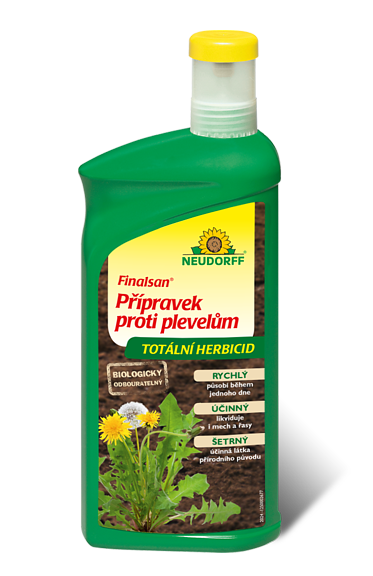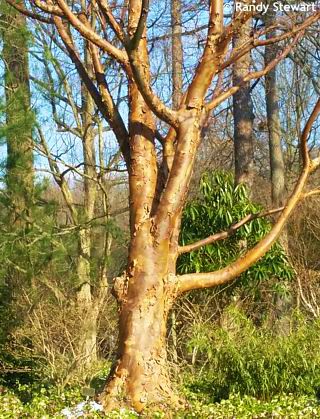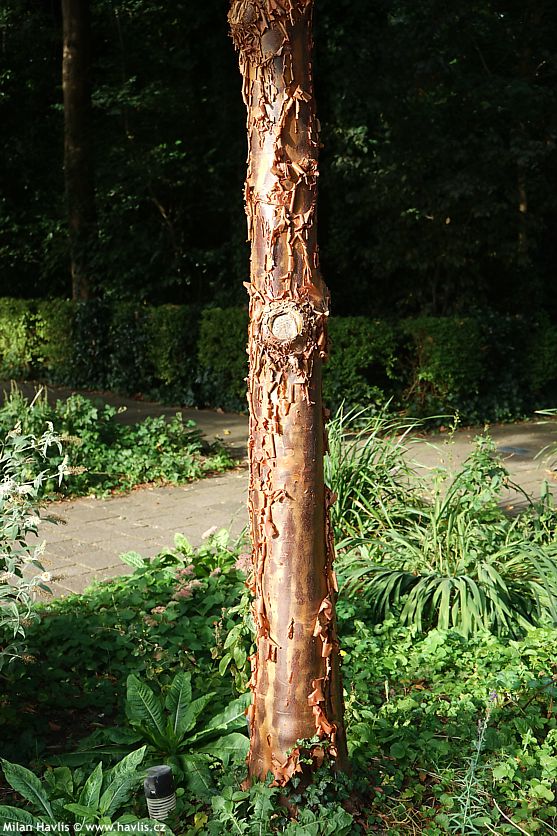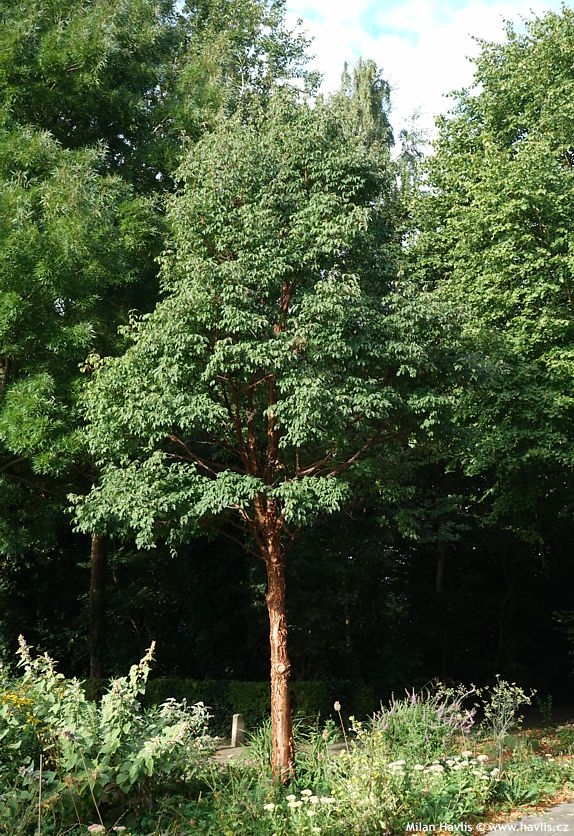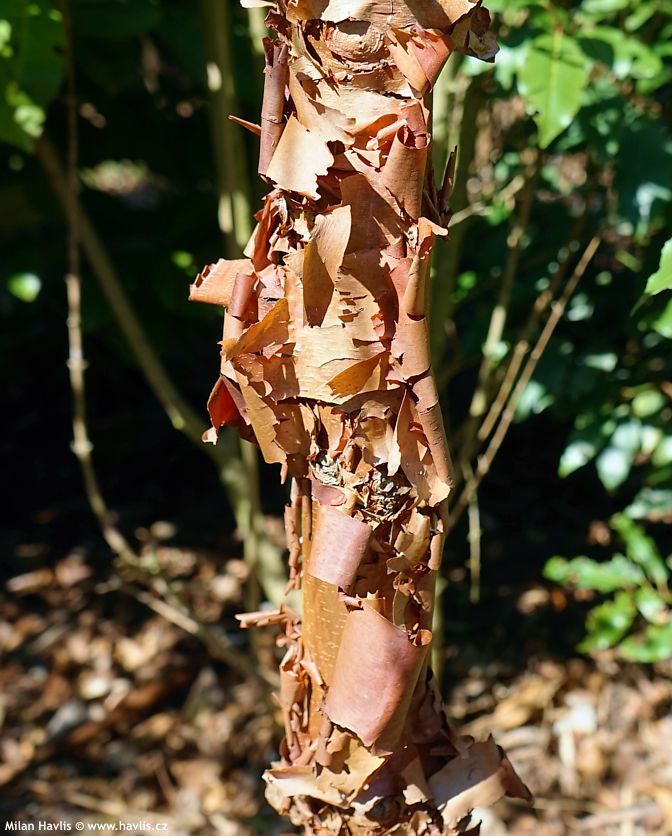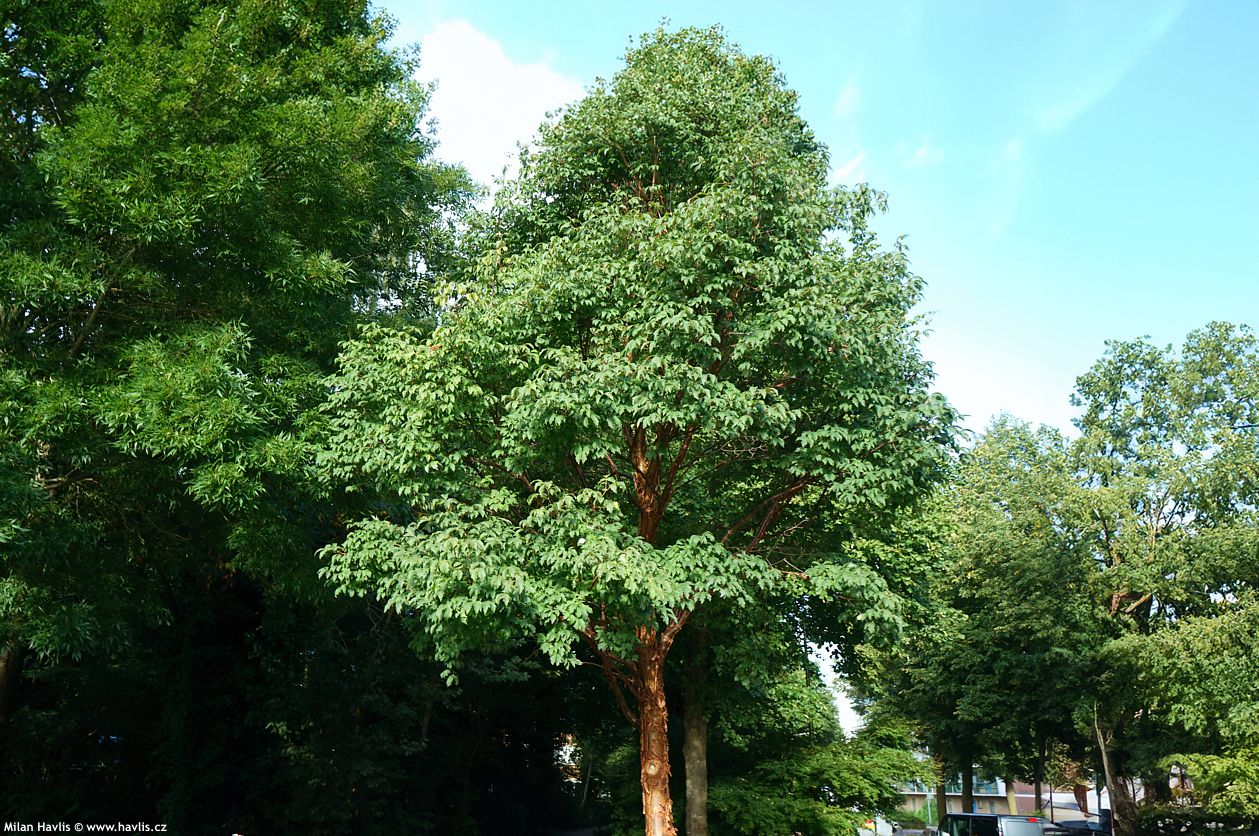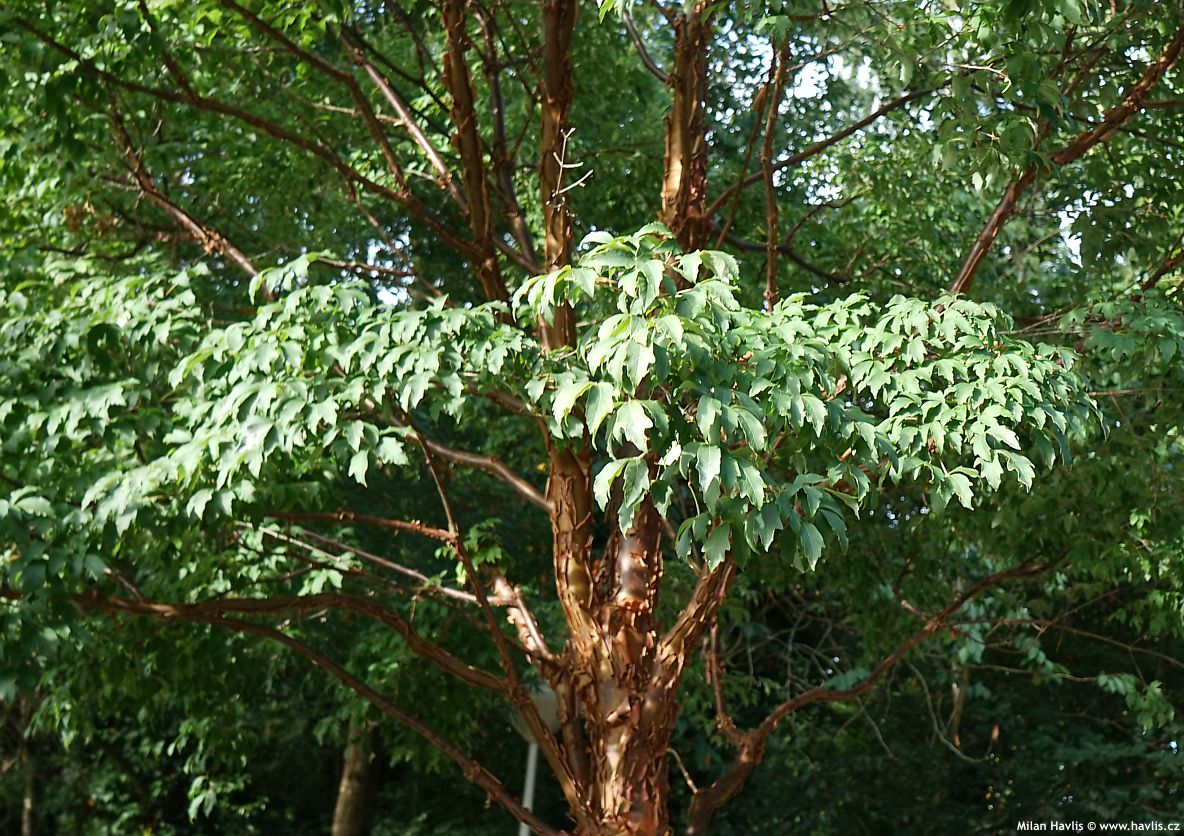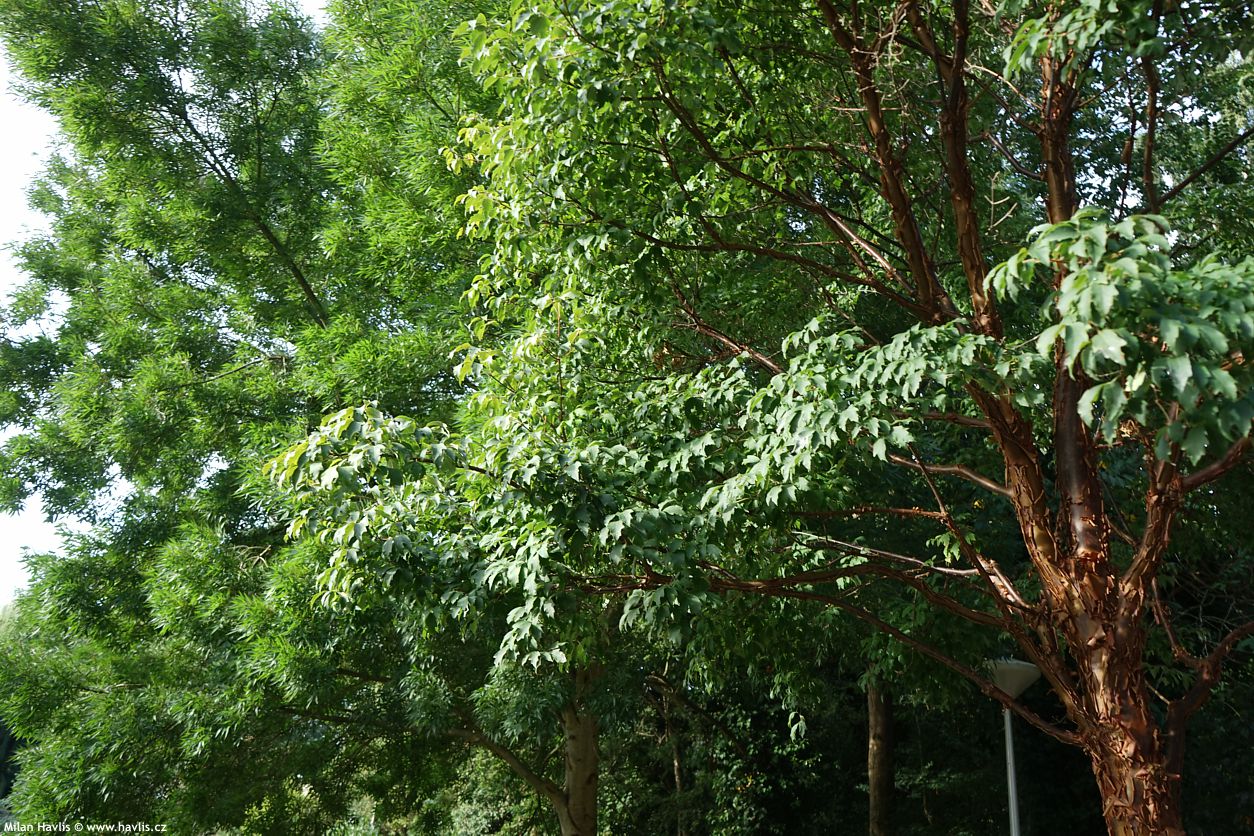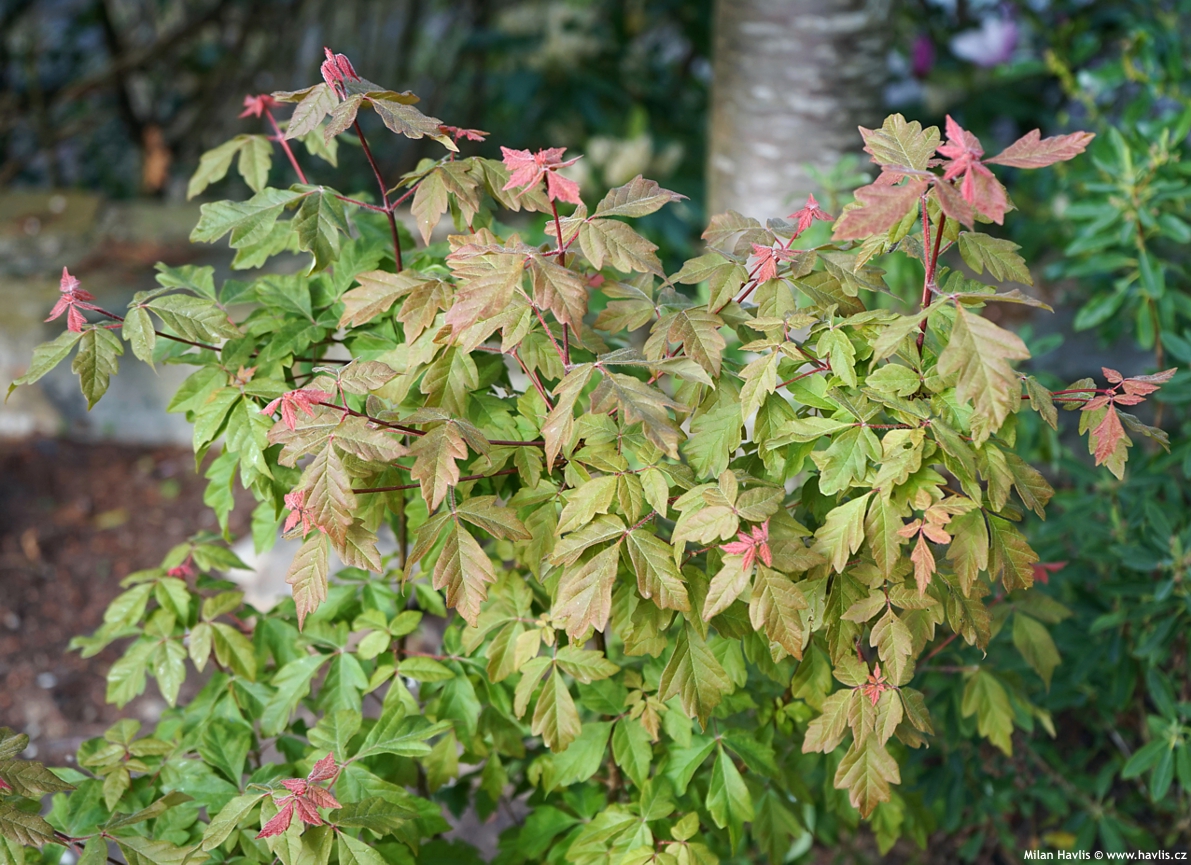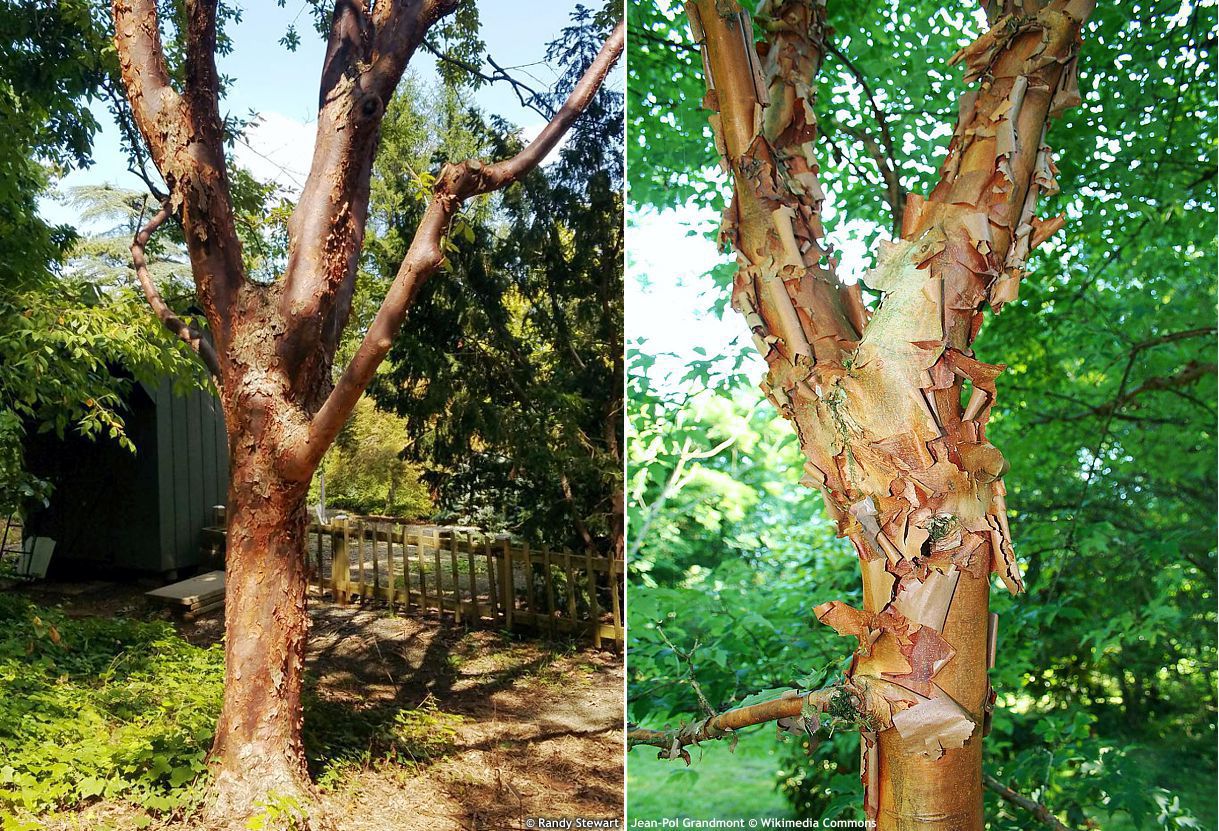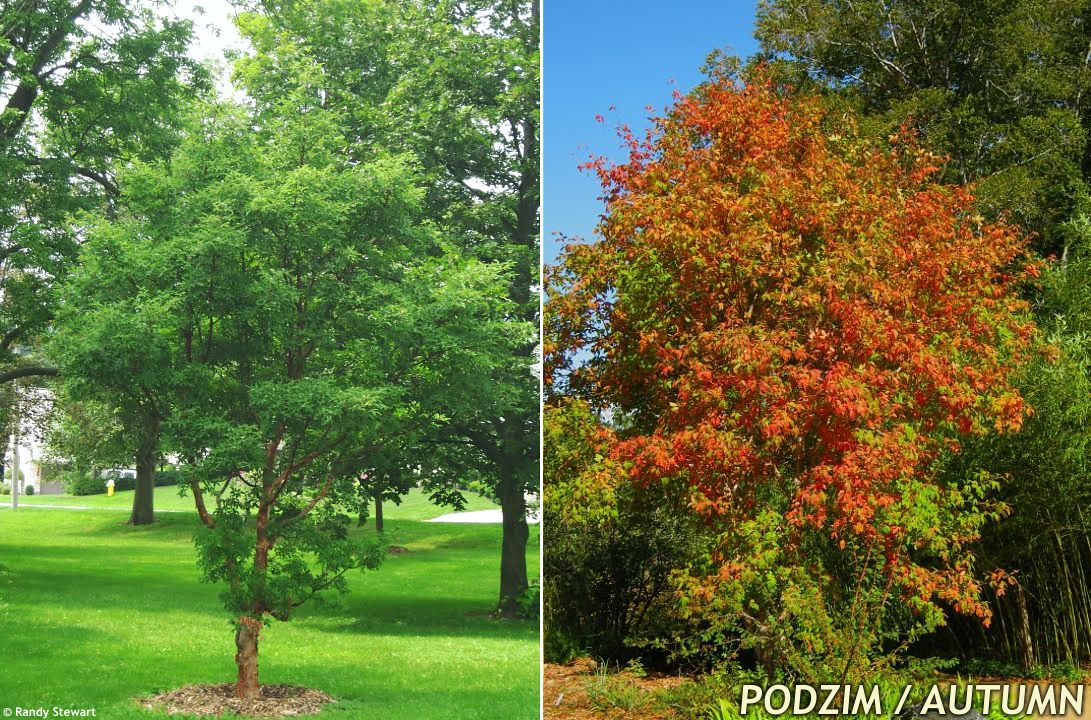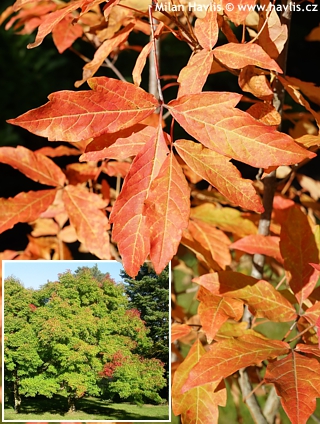Acer griseum paperbark maple
Acer
The maple genus belongs among the oldest documented deciduous trees of the Northern Hemisphere. Fossil finds of leaves and fruits prove that maples were already growing in the Tertiary period: from Czech sites in Bílina, for example, we know fossilized fruits and leaves of Acer tricuspidatum from the late Miocene, more than 15 million years old. Similar imprints have been found in North America and Asia, showing that the genus already had a wide distribution at that time. Scientifically, the genus was described by Carl Linnaeus in 1753, but its species classification has been revised many times since, as Asia – especially China, Japan, and the Himalayas – turned out to be its true center of diversity. Today, maples adapt to an astonishing range of conditions, from mountain valleys in the subtropics to the cold regions of the north.
Some trees are admired for other features than just flowers or foliage. There are many of us who easily fall head over heels in love with a picturesque bark like that on paperbark maple from China. It peels off in thin, almost paper-like shavings even on young plants which makes it one of the most sought-after items among bonsai growers. Its color is cinnamon brown first and peeled off it reveals coppery red to almost amber orange tones as it becomes glossy with age.
Deciduous leaves are palmately divided into three shallowly lobed, ovate leaflets. They are medium green during the season, and turn yellow, orange, or scarlet red in autumn – the more acidic soil, the richer colours. Their reverse is silvery grey hence its name in our Czech language – grey maple. Small, yellow flowers are borne in short, pendent racemes in May.
Paperbark maple is a slow growing species. The canopy is oval in your trees, becoming more rounded with age to almost dome-shaped, especially in multi-stemmed trees. Its mature height (40-50 years) lies between 5 and 8m tall and 4-5m wide in garden cultivation. In the wild and in arboretums and parks with plenty of root space it can grow about 10m tall. Any cutting should be done in mid to late winter to prevent from bleeding sap.
Most maples are not fussy about soil type. Still, slow growing species will benefit from some nursing in order to establish well – provide good, fertile, well-drained loam, and keep the roots moist (not wet) during the first year. The soil can be acidic for better autumn colours but it is not a must. Grow it solely in full sun. Standard single-trunk trees must be staked to a strong support for at least three years until it establishes, and the trunk thickens. Do not allow grass to grow above its roots during this period. It is hardy to abt. -34°C (USDA zone 4).
Last update 14-02-2020
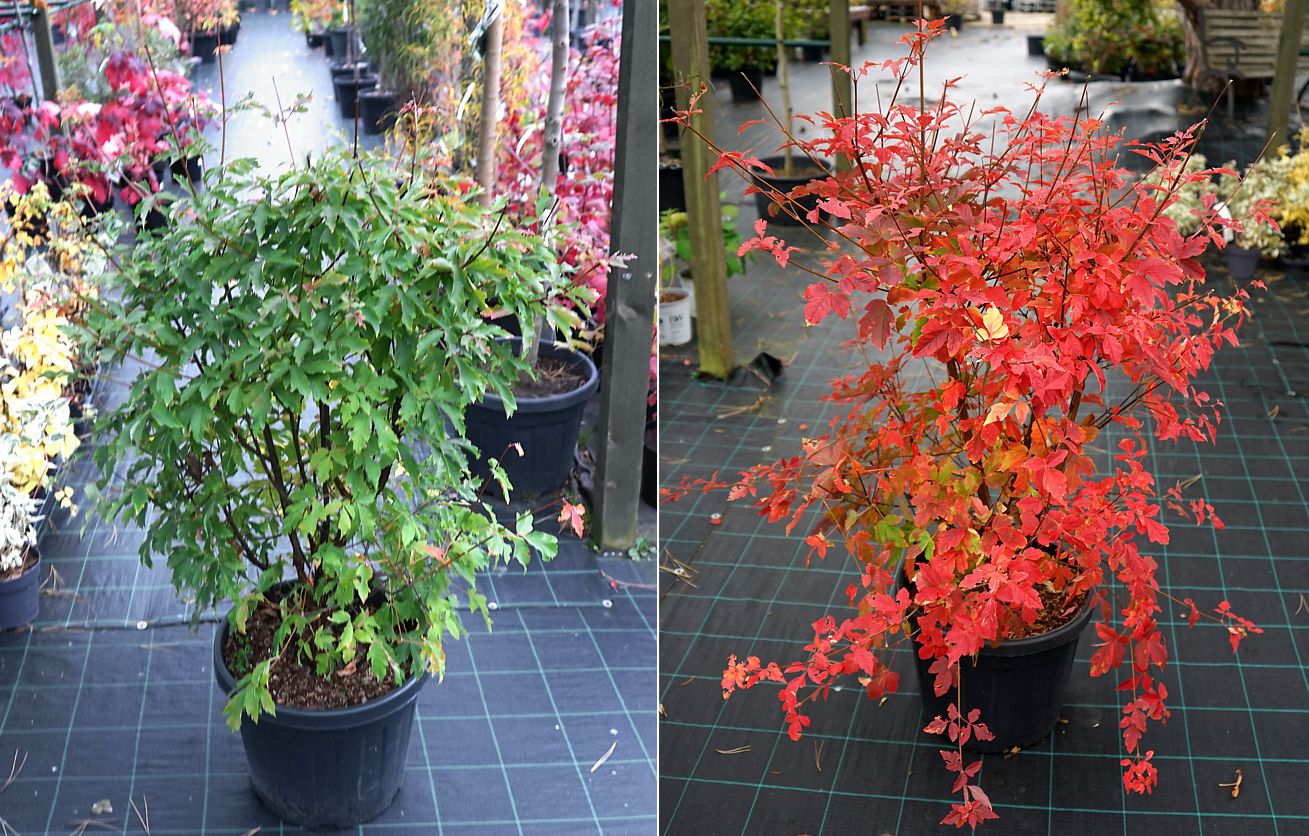
3 825 Kè
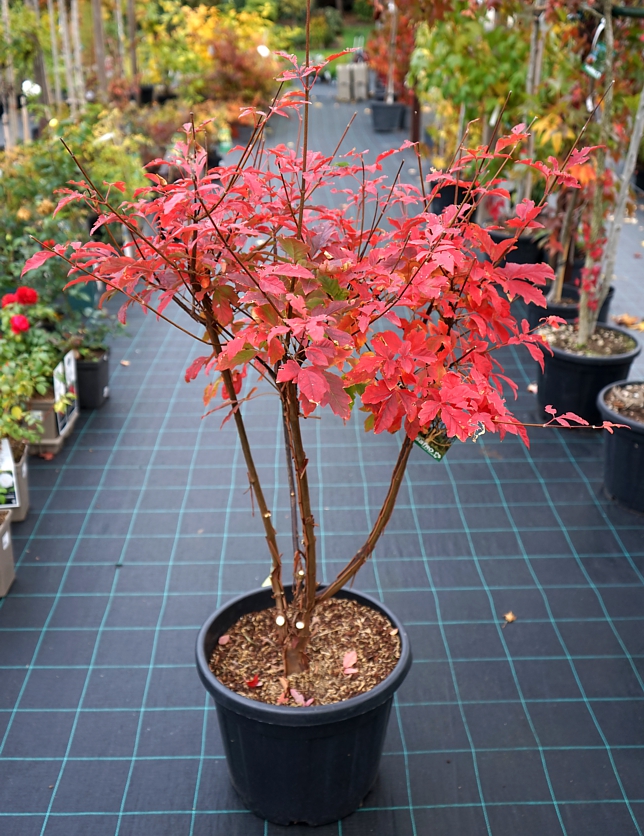
4 095 Kè
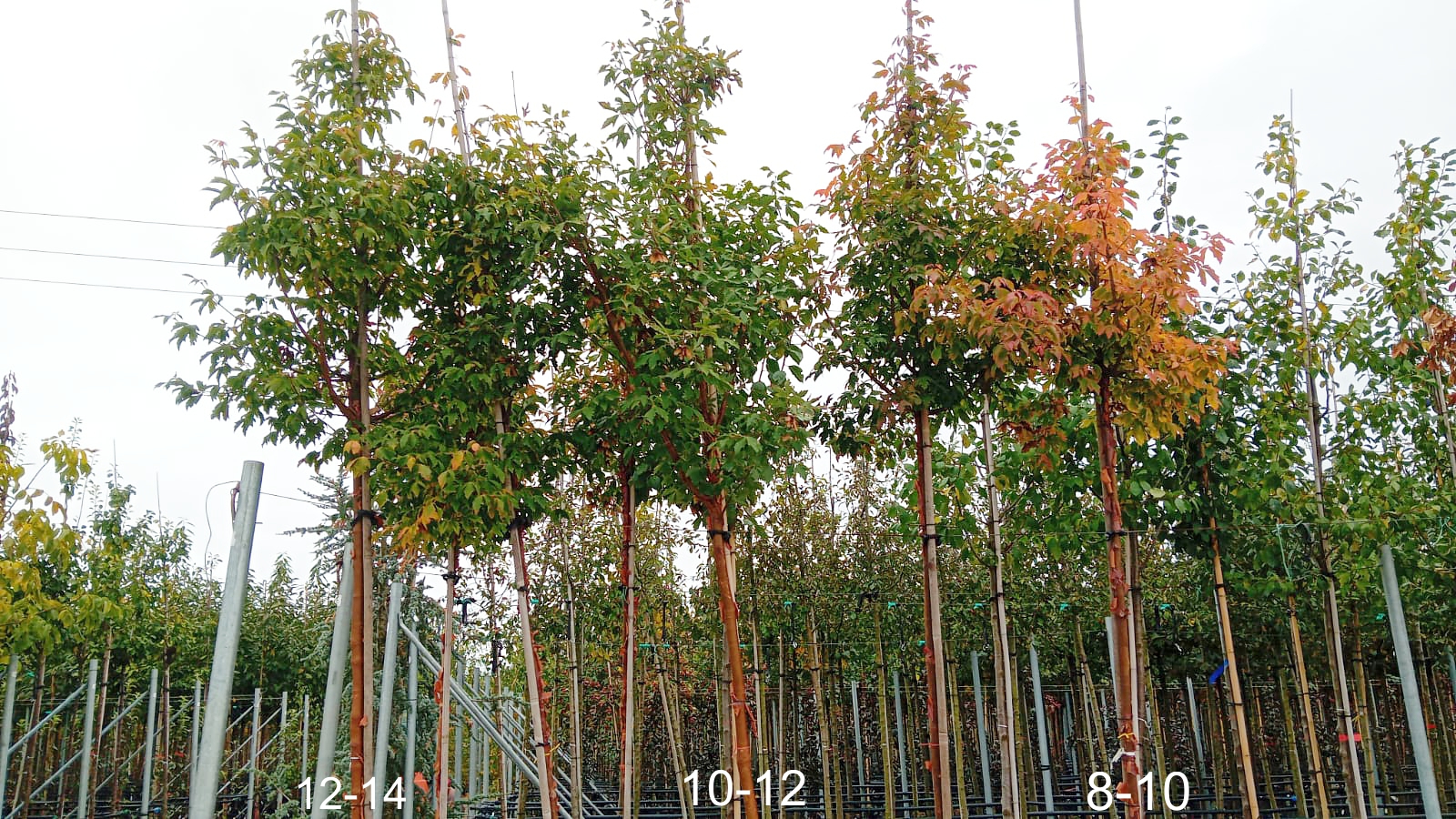
6 642 Kè
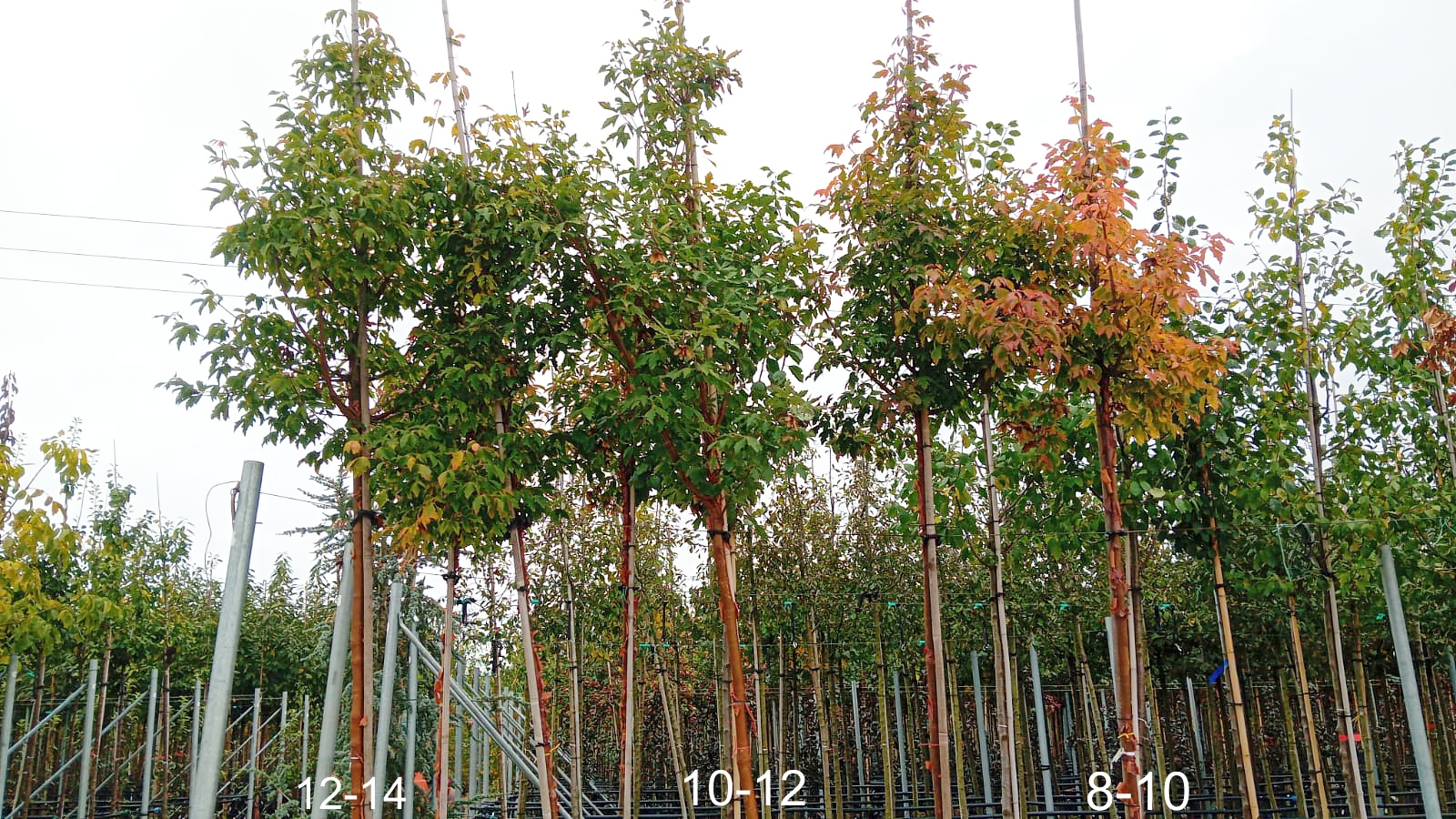
9 108 Kè
Goods are shipped all over Europe. For Russia and U.K. and for further details please read about SHIPPING OPTIONS HERE.
Are you interested in a serious discount for orders NOV-FEB? Check your options here.
THE PRICES INCLUDE VAT of 15%. For quick conversion you can use 1 CZK = approx. 0.04 EUR
- STANDARD QUALITY - Plants of this group are 1st class quality with number of branches and overall density adequate to their size and age, considering they were container grown.
- DE LUXE QUALITY - This label guarantees a luxurious quality of manually selected plants that, compared to their height and age, are exceptionally dense and beautiful.
- EXTRA - These plants are usually mature and bigger specimens with exceptional overall appearance.
- STANDARD (as described in the plant form) means a tree with a trunk of 190-210 cm and a crown at the top, unless specified differently. The commercial size for trees is their girth measured in the height of 1m from ground.
- HOBBY - These plants are of the same quality as our standard-quality plants but younger and therefore cheaper.
- SHRUB - a woody plant with branches growing bushy from the ground level.
- HALF-STANDARD or MINI-STANDARD - a small tree with shorter trunk, its size is usually specified.
- FEATHERED - These are trees with branches growing already from the base of the trunk and up along the stem.
- GRASSES and PERENNIALS - Sizes given usually read the diameter of the pot or the clump, as specified.






























